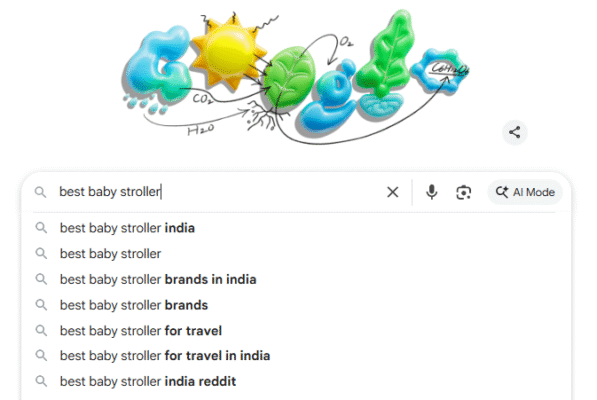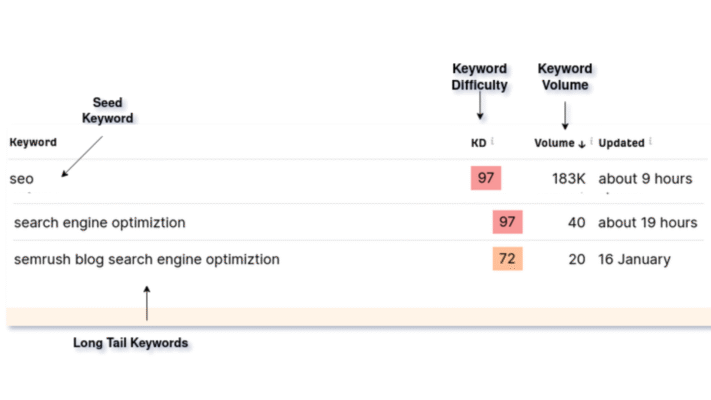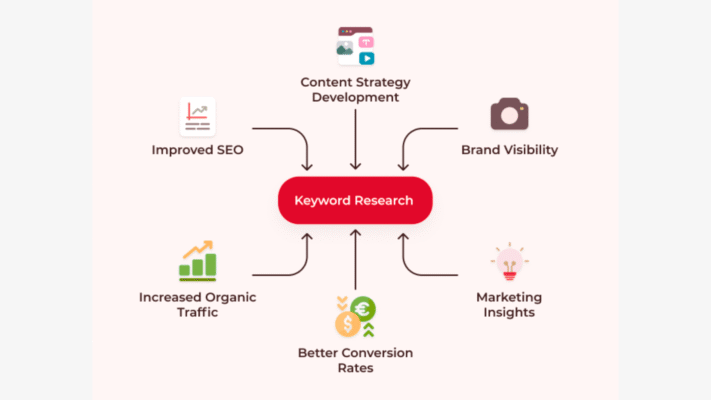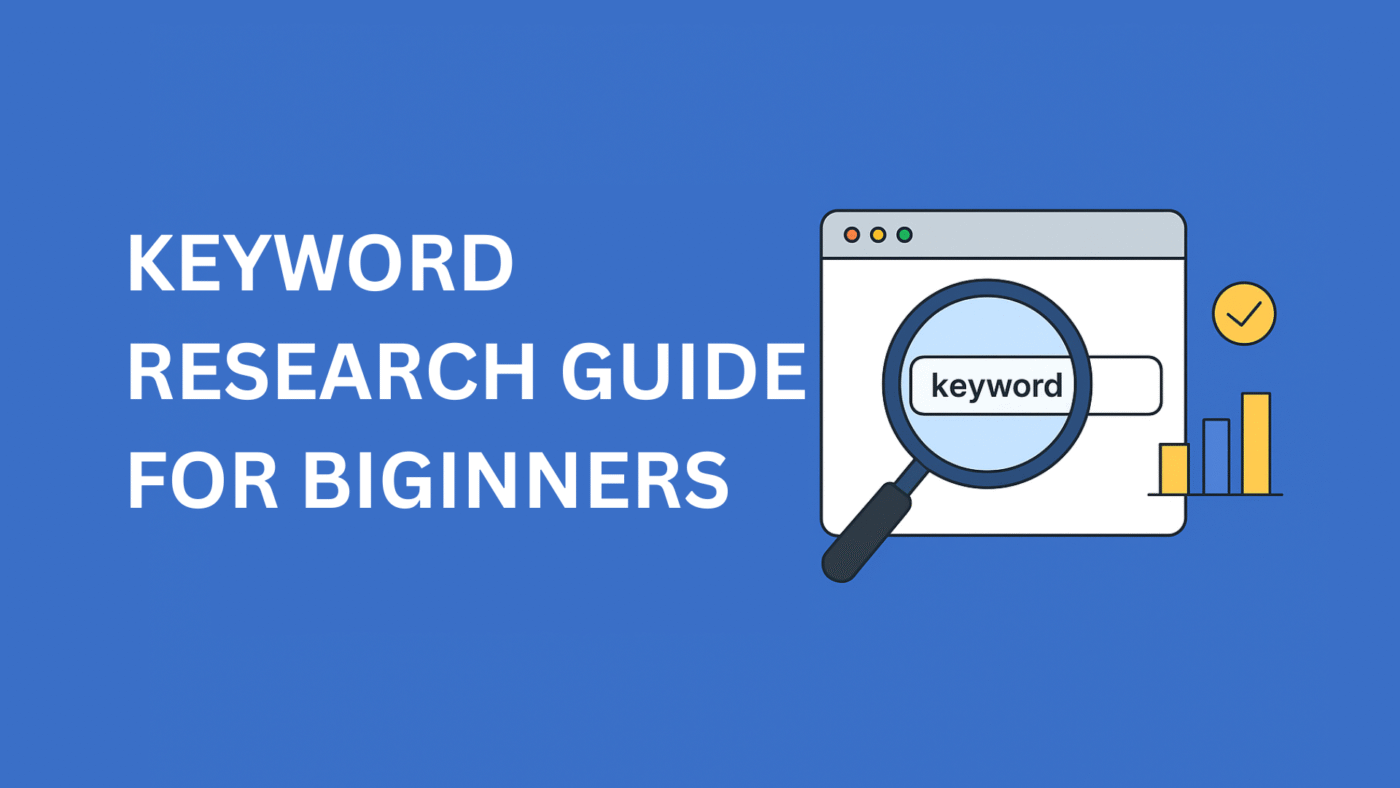Keyword research is the foundation of every successful SEO strategy. Whether you are launching a brand-new website, growing a blog, or scaling an online business, your ability to understand what people search for directly determines the amount of attention, visibility, and traffic you can attract. This Keyword Research Guide is designed for beginners who want a deep, practical, human explanation — not a complicated SEO lecture. By the time you finish this guide, you will not only understand keywords, but you will also know exactly how to find them, evaluate them, and use them in a way that improves your overall search engine presence.
When someone talks about keyword research, many beginners imagine it as a technical, difficult, tool-heavy process. But in reality, keyword research is nothing more than understanding human behavior. Every time a person searches for something — whether it’s “best coffee mug,” “how to fix slow WiFi,” or “why my dog keeps barking at night” — they are expressing a need, a question, a curiosity, or a problem. Search engines simply act as bridges connecting people to the information they’re looking for. The real magic of keyword research lies in identifying those questions and creating meaningful content around them.
To simplify this Keyword Research Guide even further, think of keywords as the “language of the internet.” They are the words people type when they want answers, solutions, recommendations, or entertainment. As a website owner, blogger, marketer, or business owner, your goal is to understand that language better than your competitors. When you know what your audience is searching for, you can create content that meets their needs, solves their problems, and ultimately brings them closer to your product, service, or brand.
Most new bloggers and marketers make one big mistake: they create content first and then think about keywords. But real SEO works exactly the opposite way. Professionals start with keyword research, analyze search intent, understand demand, evaluate competition, and only then build content that matches what the audience is expecting. This guide will help you shift to that mindset so you can create content that reaches the right people at the right time.
Imagine this simple scenario:

A new father wants to buy a stroller for his baby. His natural instinct is to open Google and type something like “best baby stroller,” “top rated baby strollers,” or “best stroller for newborn.” These search phrases reveal his problem, his intent, and the information he is looking for. If you are a blogger who writes about parenting, a baby products store, or even an affiliate marketer, knowing this keyword allows you to create content that answers his question and earns his trust — and possibly a sale.
This is exactly how keyword research works. It helps you understand the questions, needs, and interests of your audience before you create content. When you can identify what people truly want, writing valuable content becomes much easier. This is why this Keyword Research Guide is extremely important for beginners — understanding keywords is the first step to building a strong online presence.
What Exactly Is Keyword Research Guide?

Keyword research is the process of discovering the words, phrases, queries, and topics people use in search engines. It helps you understand what your target audience wants, how they think, how they express their problems, and what kind of content they expect to find.
At its core, keyword research is about identifying demand.
Every keyword reveals how many times people search for something and how strongly they desire that information. Some keywords are searched hundreds of thousands of times per month, while others are extremely niche but still valuable because they target a very specific group of people.
The purpose of keyword research is to make sure you are creating content that actually has an audience. There is no point writing articles that no one is searching for. At the same time, there is also no point targeting keywords that are so competitive that ranking becomes nearly impossible. This Keyword Research Guide will help you find the perfect balance so you can target keywords that are both achievable and profitable.
Keyword research also helps you identify new opportunities. Sometimes you may discover topics you never considered before — topics that your audience is quietly searching for but your competitors haven’t fully covered yet. These keywords are often the biggest traffic drivers because they allow you to become the first or best resource available.
Another important purpose of keyword research is understanding search intent. Not every keyword means the same thing. Two people might use similar keywords but want completely different results. For example:
-
“best laptop under $800” → wants product comparisons
-
“how to speed up a slow laptop” → wants troubleshooting
-
“laptop not turning on” → wants a solution
-
“cheap laptops sale” → wants to buy
If you misunderstand the intent behind a keyword, you will create the wrong content and fail to rank. This Keyword Research Guide will explain how to analyze intent properly so you always produce content that gives users what they expect.
Why Keyword Research Is Critical for SEO Success

Keyword research is not optional — it is essential. Search engines like Google use complex algorithms to evaluate billions of pages and deliver the most relevant answers. If your content doesn’t match what people are searching for, your website will remain invisible, no matter how beautifully written or well-designed it is.
Here’s why keyword research matters so much:
1. It helps you understand your audience better
Good SEO is built on understanding people. Keyword research reveals the exact words people use, the problems they are facing, and the type of content they trust. This information makes your content more empathetic, accurate, and helpful.
2. It increases your chances of ranking on Google
Targeting the right keywords helps Google understand what your content is about. When your content aligns with user queries, Google rewards you with higher visibility.
3. It guides your content strategy
Instead of guessing what to write, keyword research gives you a clear roadmap. You can prioritize topics that have high demand, low competition, or strong conversion potential.
4. It helps you beat competitors
Every niche has competition. When you analyze the keywords your competitors rank for, you can build better, deeper, or more useful content to outrank them. A powerful Keyword Research Guide always includes competitor analysis for this reason.
5. It brings targeted traffic that is more likely to convert
Not all traffic is equal. Targeted keywords attract people who are genuinely interested in your niche, product, service, or content. This leads to higher engagement, more conversions, and better business growth.
How Search Engines Influence Keyword Research

Many beginners assume keyword research is simply about finding high-volume keywords. But search engines like Google have evolved so much in the last few years that keyword research has become more complex and more important than ever.
Google no longer matches keywords literally. It now understands:
-
synonyms
-
related queries
-
user intent
-
context
-
search behavior
-
content depth
-
topical relevance
This means you don’t need to repeat the exact keyword dozens of times. Instead, you must cover a topic in a complete, meaningful, and helpful way. This is why this Keyword Research Guide focuses on understanding topics, not just keywords.
Google’s algorithm uses advanced natural language processing to understand search intent, so your job is to provide value, clarity, and relevancy. If you answer user questions thoroughly, your content will naturally attract better rankings.
This is also why long-form, in-depth content performs well — it satisfies more of the user’s needs in a single place. And this is exactly the style of writing this guide uses, so you can learn how to apply it to your own website.
Types of Keywords You Must Understand
There are several types of keywords, and each plays a different role in your SEO strategy. Understanding them helps you create content that works for various stages of the user journey.
1. Short-tail Keywords (Head Keywords)
Short-tail keywords are one to two-word phrases like “shoes,” “SEO tools,” or “keyword research.” They usually have extremely high search volume but also very high competition. Google receives millions of queries for broad terms like these, making them difficult for new sites to rank for.
Short-tail keywords usually lack clear intent. Someone searching for “shoes” might want to buy shoes, learn types of shoes, or browse shoe brands. Because the intent is unclear, content targeting these keywords often fails to deliver the specific answer users expect.
2. Long-tail Keywords
Long-tail keywords are longer, more specific, and much easier to rank for. Examples include:
-
“best shoes for long distance running”
-
“affordable SEO tools for beginners”
-
“how to do keyword research without paid tools”
These keywords have lower competition and clearly reveal the user’s intent. You’ll notice that this Keyword Research Guide will encourage you to target more long-tail keywords, especially if you are a beginner, because they bring more qualified and targeted traffic.
3. Informational Keywords
These are queries where users want knowledge or answers. For example:
-
“how to learn SEO”
-
“what is bounce rate”
-
“why keyword research matters”
Informational keywords are perfect for blogs, tutorials, guides (like this Keyword Research Guide), and educational resources.
4. Commercial Keywords
These are used when users are researching before making a purchase. Examples include:
-
“best laptops for video editing”
-
“top SEO software comparison”
-
“best hosting providers for beginners”
These keywords are highly valuable for affiliate marketers and businesses because they indicate that the user is preparing to buy soon.
5. Transactional Keywords
Here, the intent is clear: the user wants to take action, usually a purchase. For example:
-
“buy laptop online”
-
“cheap managed WordPress hosting”
-
“SEMrush free trial”
These keywords work well on landing pages, product pages, sales pages, and eCommerce content.
6. Navigational Keywords
These keywords are used when users want to go to a specific website, such as:
-
“YouTube login”
-
“Facebook ads manager”
-
“Ahrefs blog”
They are not typically used for content creation, but they help you understand what people frequently search for related to a brand.
Keyword Intent Categories Explained
When you explore keyword research deeply, one of the most important concepts you’ll learn in any Keyword Research Guide is user intent. Every keyword reflects a purpose — why the user searched for it, what they expect to see, and what type of solution they want. Understanding this intent helps you create content that matches the user’s mindset, which is exactly what Google expects today.
Broadly, keyword intent can be divided into four major types, and each plays a different role in your SEO strategy. When you categorize your keywords this way, it becomes easier to plan articles, choose the right format, and rank faster because your content aligns perfectly with the searcher’s expectations.
1. Informational Intent Keywords
These keywords are used when people want answers, explanations, definitions, or step-by-step guidance. They often start with “how,” “what,” “why,” or general topic phrases.
Users here are not looking to buy anything — they only need clear information.
Examples include:
-
“how to start affiliate marketing”
-
“what is domain authority”
These keywords are perfect for blogs, tutorials, and guides. Most of the educational content in your Keyword Research Guide will revolve around these types of keywords.
2. Commercial Intent Keywords
Commercial keywords appear when users are researching before making a purchase. They want comparisons, reviews, pros and cons, or recommendations.
Examples include:
-
“best budget DSLR camera”
-
“Shopify vs WooCommerce”
These users are close to becoming customers, which makes commercial-intent keywords extremely valuable for affiliate blogs and product-focused websites.
3. Transactional Intent Keywords
Transactional keywords signal that the user is ready to take action — usually to buy a product, sign up, or hire a service.
Examples include:
-
“buy noise cancelling headphones online”
-
“subscribe to email marketing software”
These keywords have the highest conversion rate. In any strong Keyword Research Guide, transactional keywords are considered the “money keywords” because they lead directly to sales.
4. Navigational Intent Keywords
Navigational keywords are used when people want to reach a specific brand, platform, or website.
Examples include:
-
“Amazon login”
-
“YouTube Studio”
These users already know what they’re looking for, so your job is not to convince them — it’s simply to help them reach the right page if you’re offering that service.
Different Ways to Do Keyword Research (Unique Version)
There are multiple approaches you can follow when performing SEO keyword research. Below are some of the most effective methods that even complete beginners can apply easily.
1. Discover Competitor or Authority Site Keywords
One of the simplest ways to uncover keywords that already generate results is by analyzing websites that rank highly in your niche. For example, if your topic is “best baby stroller”, you can run a quick Google search.
From the results, note down the top 2–3 ranking sites. These are your primary competitors.
Once you have these domain names, open Semrush, which is a powerful keyword research tool.
After logging into Semrush (a free account works fine), enter the competitor’s domain in the search bar. Semrush will then reveal a list of keywords that the site is currently ranking for.
Semrush provides essential data including:
-
Organic search positions
-
Top keywords sending maximum traffic
-
Search volume, KD (Keyword Difficulty), traffic %, and ranking position
-
Individual pages receiving traffic and their corresponding keywords
You can also apply filters to refine the keyword list based on your requirements.
With this simple technique, you can uncover a large set of profitable keywords within minutes—perfect for planning your content strategy.
2. Use Keyword Gap Analysis to Find Easy Opportunities
Keyword Gap Analysis is another underrated method that helps you locate keywords your competitors rank for but you currently don’t. This strategy is ideal for existing websites that want to discover quick-win keywords or low-competition opportunities.
Using Keyword Gap tools in Semrush (or similar platforms), you can compare your site with competing websites. The tool highlights missing keywords—these are phrases that competitors receive traffic from but your website has no presence on.
These uncovered terms often represent easy wins and can significantly boost your organic traffic when targeted properly.
3. Use Seed Words to Generate Fresh Keyword Ideas
This method works well for both new and established websites. Although slightly more time-consuming than the previous two approaches, it helps you discover unique keyword opportunities that competitors may not be targeting.
To execute this method, you can use keyword research tools or long-tail keyword generators.
For this guide, let’s use Semrush again:
-
Go to Semrush
-
Open Keyword Magic Tool
-
Enter your seed keyword (for example, “baby stroller”)
-
Choose your primary target country
-
Hit Search
Within seconds, Semrush will generate hundreds or even thousands of keyword ideas based on your seed term.
You can sort and filter these keywords through multiple views:
-
Exact Match: Shows keywords containing the exact phrase in the same order, such as “buy baby stroller” or “baby stroller price in Boston”.
-
Broad Match: Displays variations with different word orders, like “newest baby stroller buy” or “best place to buy baby stroller”.
-
Phrase Match: Provides relevant combinations that include your main phrase.
-
Related Keywords: Suggests keywords related to your niche but not necessarily containing your exact seed term.
You can use Google Keyword Planner as an alternative, which is free. However, GKP is primarily designed for PPC advertisers, so it may not be as SEO-friendly as tools like Semrush. Still, for beginners on a tight budget, it is a workable option.
You can achieve the same results using other tools such as KWFinder, Ahrefs, Ubersuggest, etc.
After extracting your main keywords, your next steps should include:
-
Creating keyword clusters
-
Developing a content plan
-
Structuring website pages
-
Monitoring performance and optimizing
I will cover keyword clustering and SEO roadmap creation in upcoming guides.
Explore More on YouTube Keyword Research Guide
If you want to understand keyword research with simple visuals and practical explanations, check out my dedicated YouTube playlist. I’ve shared easy tutorials, real keyword research examples, and step-by-step guidance to help you master SEO faster.
👉 Watch the full Keyword Research Playlist here:
https://www.youtube.com/playlist?list=PLY0cgffBeiVxdLOIykcKrVhoG5Hb3iKi5
Keyword Research Guide FAQs
How do you perform Keyword Analysis?
Keyword analysis involves using tools like Semrush, Ahrefs, Mangools, or similar platforms to find relevant keywords for your content. You can begin by identifying seed terms or analyzing competitor websites. These tools help you evaluate search volume, keyword difficulty, and relevance. Once your list is ready, use clustering tools (like Keyword Insights) to group them and build topic-focused content that improves your authority.
What is a Keyword in SEO? (With Example)
A keyword is a word or phrase a user types into a search engine when looking for information.
Example: “best backlink checker”.
If you optimize your content for the right keywords, your website can appear higher in search results for those terms.
What is the best Keyword Research Method in SEO?
It depends on your goals, but the most effective techniques include:
-
Competitor Keyword Analysis
Use Semrush, Ahrefs, etc., to see which keywords top competitors rank for. -
Keyword Gap Analysis
Identify keywords your competitors rank for that you don’t—ideal for finding low-effort keyword opportunities. -
Seed Keyword Expansion
Use tools like Semrush’s Keyword Magic Tool or Google Keyword Planner to generate fresh, relevant, long-tail keywords.
Related Blog: The Complete Keyword Research Guide for Beginners: Master SEO from the Ground Up


